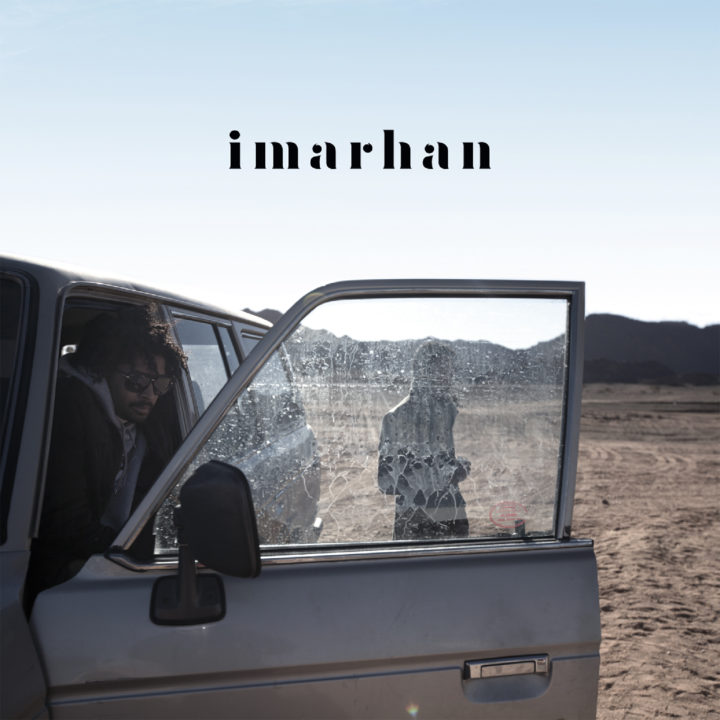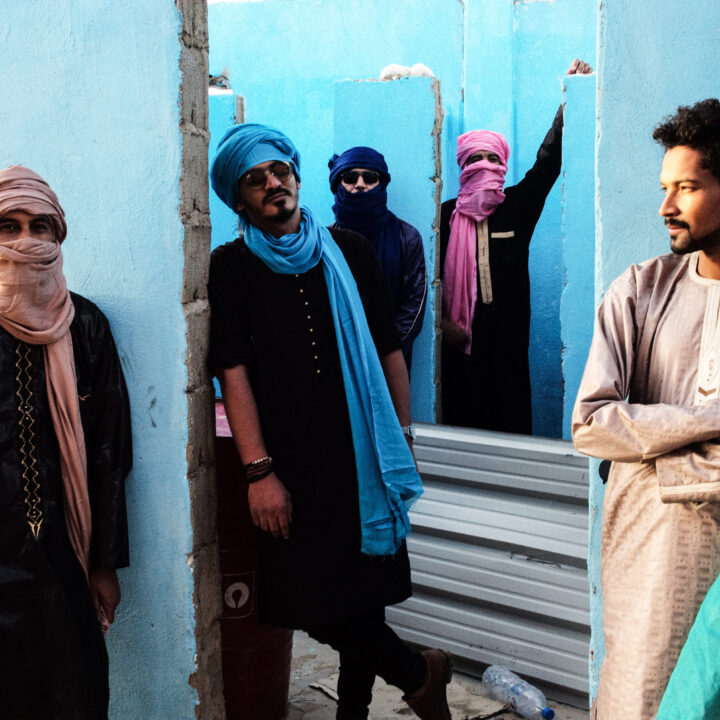Imarhan
Biography
In early 2019 the members of Imarhan began building a professional recording studio, the first ever in their home city of Tamanrasset in Southern Algeria. The group christened it Aboogi, named after the first semi-permanent structures their nomadic forebears built when establishing settlements and villages, and began tracking the first album they were able to record on their native soil. It seemed only natural to also call the resulting collection of songs Aboogi, a nod to the new collective space they had established, as well as the resilience of their culture and communities.
The diversity, beauty, and struggles of life in Tamanrasset are reflected in the songs on Aboogi. Following the exhilarating, eclectic Temet (2018, City Slang) - which OkayAfrica declared “doesn't just take the next step in Tuareg music; it sends it into hyperspace” - Imarhan has made an album that is as serene and open as the desert it emerged from. “Aboogi reflects the colors of Tamanrasset, what we experience in everyday life,” says bandleader Iyad Moussa Ben Abderahmane, aka Sadam. “We give space to the wind and the natural energies, to the sun and the sand. We want to express their colors through music.”
Aboogi features collaborations with Sudanese singer Sulafa Elyas, who contributes a gorgeous verse in Arabic on the mournful “Taghadart,” and Super Furry Animals’ Gruff Rhys sings of the value of kinship on “Adar Newlan” in his native Welsh. Their local Tamanrasset community joins in as well, including Tinarwen’s Abdallah Ag Alhousseyni and the poet Mohamed Ag Itlale, also known as Japonais, a pillar of the city’s artistic community who passed away shortly after these recordings were made.
Though the backbone of Imarhan’s music is based in the traditional rhythms and flourishes of Tamasheq wedding bands and the Assouf music pioneered by Tinariwen, Imarhan’s songs are thoroughly contemporary, bridging the past and future. On “Assossam” they sing together in one voice of the frustrations of the Tuareg people in post-colonial Southern Algeria, economically disenfranchised by their government as money and power are concentrated in Algiers two thousand miles to the north. “Adar Newlan” touches on the struggles of the young people of Tamanrasset: “The sons of my country are exhausted,” sings Sadam in Tamasheq, referencing oppressive laws that end up imprisoning many young men who are forced to work while struggling to simply survive. But still they draw on ancestral texts, such as on “Tindjatan,” which tells the story of a great defeat suffered by a Tuareg community during a war before French colonization.
These may be heavy topics, but the transcendent music on Aboogi belies its fierce sense of conviction and justice. Therein lies the complexities that make Imarhan’s music so prescient - beauty and tranquility intermingle with strife and heartache, creating a dynamic view of life for those subjugated by over a century of colonialism and lopsided revolutions but blessed with extraordinary community, art, and culture. With this album, and with the new studio that shares its name, Imarhan have opened their arms to those around the world who share their sense of conviction and open-mindedness, ready to build relationships with artists and audiences of all generations and backgrounds based on a deep trust in themselves and each other. “Please,” sings Sadam on “Taghadart,” “safeguard my trust, from now until the end of time.”
Finally, the band have announced a run of European and UK dates in the spring of 2022. The full list of dates can be found here: https://www.imarhan.com/



